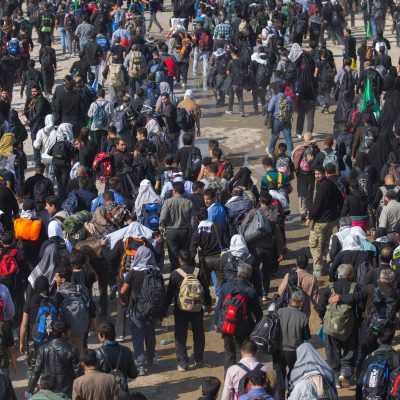Accueillir les réfugiés ukrainiens dans l’UE
Un premier aperçu des conséquences socio-économiques

La Fédération de Russie, dirigée par Vladimir Poutine, a lancé le 24 février 2022 une offensive militaire contre l’Ukraine, engendrant sur le territoire européen un désastre humanitaire d’une ampleur inégalée depuis la Seconde Guerre mondiale. Confrontés à de violents bombardements, à des combats et autres massacres au sol ayant causé de nombreuses pertes militaires et civiles et laissé une partie de la population ukrainienne avec des ressources très limitées, près de 10 millions d’Ukrainiens ont fui leur domicile pour se réfugier dans d’autres régions d’Ukraine mais aussi dans des pays voisins, au premier rang desquels la Pologne.
Les réfugiés ont été accueillis à bras ouverts dans l’UE, où les chefs d’État et de gouvernement, tout comme les citoyens, ont fait preuve d’une véritable solidarité à l’égard du peuple ukrainien, conformément aux valeurs européennes inscrites dans nos traités (article 2 TUE).
Néanmoins, cet afflux de millions d’Ukrainiens sur une période si courte ne sera pas sans incidences socio-économiques pour nos sociétés. Ce papier offre un premier aperçu de ces conséquences, même si l’incertitude demeure un élément crucial à prendre en compte dans notre analyse.
Ce papier examine tout d’abord la situation actuelle et son évolution, tant en termes de nombre et de profil des personnes contraintes à quitter leur pays, qu’en termes de réponse apportée jusqu’à présent par l’UE. La seconde partie de ce papier insiste plus particulièrement sur la nécessité de garantir une aide d’urgence aux réfugiés, ce qui nécessite de mobiliser un nombre considérable de ressources, tant humaines que matérielles, dans les États membres les plus concernés. La dernière partie se concentre sur l’intégration à long terme des réfugiés ukrainiens souhaitant rester dans l’UE et, malgré la tragédie actuelle, sur les « bénéfices » que cela pourrait apporter à l’UE.




